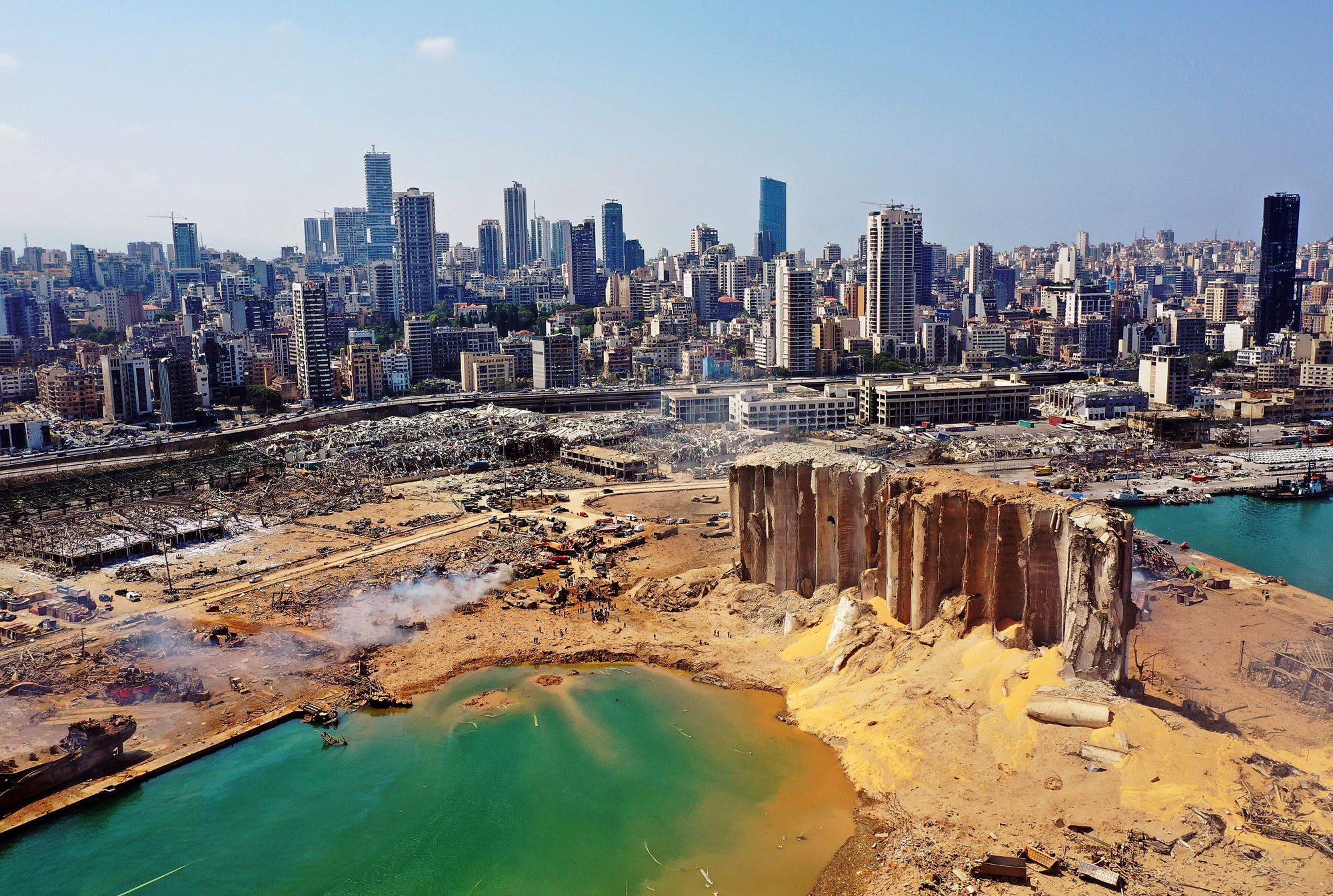The tragic incident has changed the dynamics of Lebanon’s society.
4 August 2021 marks one year since the people of Lebanon experienced one of the largest non-nuclear, man-made explosions, ranking as the sixth-largest accidental blast in human history.
The date of the blast, which triggers deep sorrow and grief, is being remembered one year on by families of the 200 victims, thousands of injured and millions of Lebanese around the world.
"سنكشف الحقيقة خلال 5 أيام"… الذكرى السنوية الاولى لكارثة #انفجار_مرفأ_بيروت ولم تكشف الحقيقة بعد، بل يحاول نواب ووزراء واحزاب سياسية ورموز في السلطة التغطية على الجريمة وعلى من يشتبه بمسؤوليتهم عنها. pic.twitter.com/35SGzp0eVB
— Jalal Chahda جلال شهدا (@ChahdaJalal) August 3, 2021
“I can tell you that it feels like this day last year all over again…because today all the posts are related to what happened last year, you’re reminded of the people that lost their lives, their homes, the schools that were affected, the hospitals, and the people emotionally and physically recovering,” Alessandra El Chanti, a Lebanese citizen living in Qatar told Doha News.
“It’s very much still August 4th for every Lebanese.”
To mark the devastating anniversary, social media users in Qatar took to Twitter, Instagram and other popular online platforms to remember the tragedy that struck the heart of the country using the hashtag #BeirutPortExplosion [#انفجار_مرفأ_بيروت].
Social media users on Twitter called for an urgent need for accountability from politicians in Lebanon, many of whom were aware of the 2,750 tons of ammonium nitrate stored at the Beirut Port.
“‘We will reveal the truth in 5 days’… it’s the first anniversary of a disaster #Beirut_Port_Explosion and the truth has not yet been revealed, but representatives, ministers, political parties and figures in the authority are trying to cover up the crime and those suspected of being responsible for it,” tweeted Lebanese Al Jazeera journalist Jalal Chahda, quoting authorities at the time who had promised swift answers.
His colleague, Lebanese journalist Rawaa Augé also said: “They knew! Lebanon did not survive the explosion. Today I visit it after a year and see how they blew up life…many say that they live today ‘from a lack of death’…even though it [death] is abundant in my country.”
“Time has stopped since August 4 as long as truth and justice have yet to emerge,” said another Twitter user.
Read also: Qatar’s EAA, UNESCO to ‘restore education’ in $10mn project to rebuild Beirut schools
Similar messages of support, solidarity and mourning were shared by people around the world.
“Sending my prayers and love to Beirut. No words can adequately express sympathy for the grief they are feeling today. Just know you are in my heart,” said Aimee Monahan on Twitter.
People behind the explosion
Meanwhile, a report released by Human Rights Watch [HRW] on Tuesday detailed the involvement of several Lebanese officials in storing the ammonium nitrate at the Beirut Port, whom it said accepted all risks.
Titled “They Killed Us from the Inside”, the report said Lebanese President Michel Aoun, Caretaker Prime Minister Hassan Diab, Director General of State Security Tony Saliba and other former ministers are wanted for questioning by judge Bitar for failing to protect the public.
“Evidence strongly suggests that some government officials foresaw the death that the ammonium nitrate’s presence in the port could result in and tacitly accepted the risk of the deaths occurring,” the report said.
The explosives were stored after Russian ship, the Rhosus, which in 2013 was carrying the chemicals to Mozambique, stopped off at Beirut port after facing financial difficulties.
At the time, Lebanese officials authorised the unloading of the toxic material at the port, with HRW noting that there are questions on whether the shipment was intended for Mozambique or Beirut itself.
The rights group called on the United Nations Human Rights Council to investigate the blast and on foreign governments to impose human rights and corruption sanctions on Lebanese officials.
The report came following delayed investigations by Lebanese officials led by Judge Tarek Bitar. So far, politicians and senior security officials have not been subjected to questioning even one year after the deadly blast. This is despite the emergence of documents proving that the explosive material was green-lighted as far back as 2013.
“Year after year, nothing was done to eliminate the threat,” Lama Fakih, crisis and conflict director at HRW, said at a press conference on Tuesday as the group presented its new report.
The rights group said officials have obstructed investigations and showed a “lack of respect for fair trial standards”, with people in Lebanon calling for lifting the immunity on politicians and security officials.
On Friday, Aoun claimed he was ready to testify and suggested no one was above the law.
Follow Doha News on Twitter, Instagram, Facebook and Youtube







